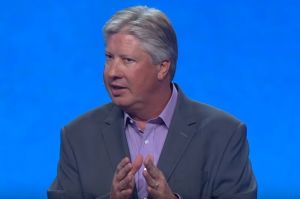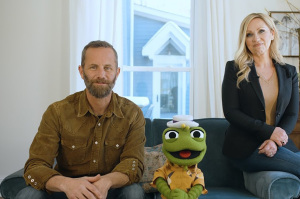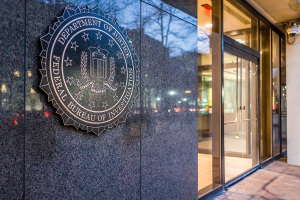Hobby Lobby Case and What It Says About Corporations With a Conscience
If people want to deny corporations a conscience, how can they ever again demand that corporations act morally, conscientiously?

The Supreme Court was right to allow corporations to be exempt from the mandate to pay for abortion pills or contraception when their leaders have established religious reasons against them. Moral issues can stand as questions for the liberty of conscience – whether individual conscience or corporate conscience.
That liberty of conscience empowers individuals, religious institutions, and corporations – as the Supreme Court just now made clear on the last day of June! The protections of the liberty of conscience for years have allowed people with a track record of pacifism to be exempt from military service and also for hospital nurses and doctors who object to abortion to be scheduled for other surgeries only. "Conscientious objectors" have had a long, distinguished, respected, empowered history in America.
Oddly, those who attack a corporate right to choose allege that it is obvious that corporations do not have consciences – and so that they cannot be "conscientious objectors." How are those attackers so blind?
For years enlightened people have urged corporations to exercise their consciences, to affirm social responsibility, to care for the environment, to speak the truth, to honor the civil rights and basic humanity of all their employees, customers and neighbors – among other moral corporate behaviors. As a charter member and former officer of the Society for Business Ethics, we have repeatedly sought to hold corporations accountable for their policies and the consequences of their decisions. Moral categories like "just," "accountable," "caring," and "morally aware" apply to individuals, groups, and also corporations. The applications of these ethical terms may vary, but the point is the same. Corporations can be properly and successfully sued for being unfair, unaccountable, and even lacking "due care" – even when no explicit laws are broken.
We properly critique General Motors – not just its officers – for failing to correct its ignition-switch problem. Even if all the officers responsible for this tragic failure were replaced, we still will trust General Motors less. People died and others were severely injured because GM failed them. What was missing in the GM corporate ethos? The ethical core?
If people want to deny corporations a conscience, how can they ever again demand that corporations act morally, conscientiously? If we want our corporations to be ethical agents, both corporate conscience and conscientious objection must be in the mix, too.
The morality of corporations is partly aided when they are led by people of good conscience. Nevertheless, "group think," even among good people, can still become very problematic, if not seemingly demonic. The broadly respected Reinhold Niebuhr talked of Moral Man and Immoral Society, including writing a book by that title in 1932, because even otherwise good people can numbly engage in group activities that they would never consider doing individually, on their own. There are many examples, including the majority of wars, large portions of political rhetoric, and most of the racial and gender bias in social structures. It is not enough to have conscientious leaders. We have and treasure many conscientious corporations. They are now nicely recognized and empowered once more.
In a recent ChristianPost.com essays on Gospel faithfulness (here) and here, we examined the essential, eternal marriage of faithful behavior and faithful belief. Saving faith is based upon God's active faithfulness to us, and it should result in our growing, measurable faithfulness to him – and all of this by the Lord's amazing grace.
Those recent Gospel faithfulness essays helped explain why freedom of religion and liberty of conscience were essential Biblical teachings at the very heart of a vibrant society. This gracious, God-given right of elemental freedoms and liberties has become an increasingly urgent topic both within the United States and internationally. Within the U.S., there are numerous governmental and educational pressures to try to make everyone support a secular, no-public-prayer, pro-abortion, marriage-is-whatever-you-want-it-to-be public agenda – without the liberty of conscience. Consequently, the liberty of conscience has been in serious danger recently. Meanwhile, "conscientious objector" is almost an unused term. Let us revive it now. Religious oppression is also a growing international menace as all current readers of the ChristianPost.com and other news outlets know well.
By the way, it was particularly offensive for the federal government – under the clumsy camouflage of making health care affordable – to try to force everyone now to support abortions, including abortion pills. It should make no difference if we support morally offensive activity as individuals or as groups or corporations – all are morally noxious. We people are still responsible for decisions. Why should we become morally numb just because we work corporately? One does not have to study Reinhold Niebuhr to understand moral consistency.
It is bad enough when people act badly as part of a group, or gang. It is morally revolting when we are required by law to act badly. All our leaders know very well that a huge portion of us have deep moral objections to abortion on demand and abortion pills. Even if some people believe that the "morning after" pills do not cause abortions, that case remains ambiguous. Liberty of conscience must still be respected, even when other people's consciences are wrong.
Of course the numbers of objectors are not important. Even the established, long-term moral passions of a small minority should be respected. And the contraceptives that many want to be given freely are available for pocket change, anyway.
Our leaders like to talk of "diversity," but there are increasing pressures on everyone for a secular uniformity, a social conformity that excludes Biblical values. Please tell me: Who really wants their world to become one giant anthill? No one! Thankfully, freedom and liberty were invented by our Creator – as recorded in the Bible, and noted in our Declaration of Independence – and these divine rights protect all of us from tyranny, even from well-intentioned tyranny. Everyone benefits with freedom. Besides, the liberty you protect for others is always also your own.
In the Biblical instructions for life in the Promised Land in Leviticus 25, we read some of the boldest freedom-loving words: Proclaim liberty throughout the land, to all the inhabitants. This message of liberty was to free everyone – including the citizens, the non-citizens, and the "undocumented." For good reason this awesome Biblical announcement was crafted into the American Liberty Bell years before it was rung as the Declaration of Independence was signed in 1776. Also, for good reason our understanding of liberty was broadened to include freedom from the oppression of hostile ideology – such racial-discrimination, gender-bias, power-manipulation of health care, and pro-abortion policies of a society.
The Biblical pronouncement for liberty in Leviticus – Proclaim liberty throughout the land, to all the inhabitants – boldly expressed the deep devotion to liberty that also characterized the early American leadership. The founders of our blessed republic would be proud of our Supreme Court in confident support of the liberty of conscience, including liberty of corporate conscience. As we celebrate America's 238th birthday, let the Liberty Bell, though cracked, ring loudly for the precious liberty of conscience, now so powerfully reaffirmed. Thank you Lord.





























